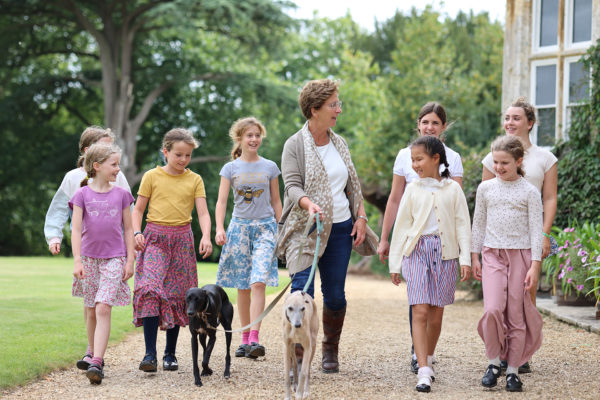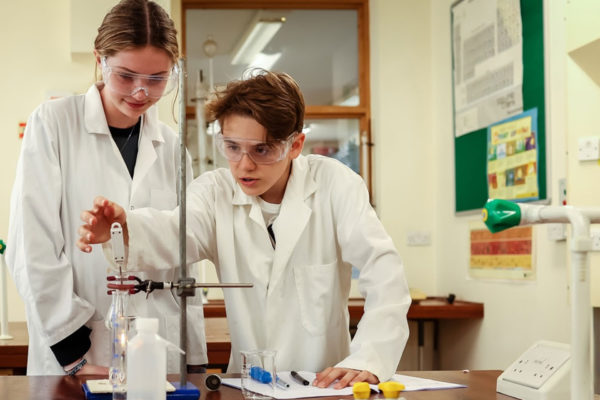The Benefits Of Sports At Nursery
By
2 years ago
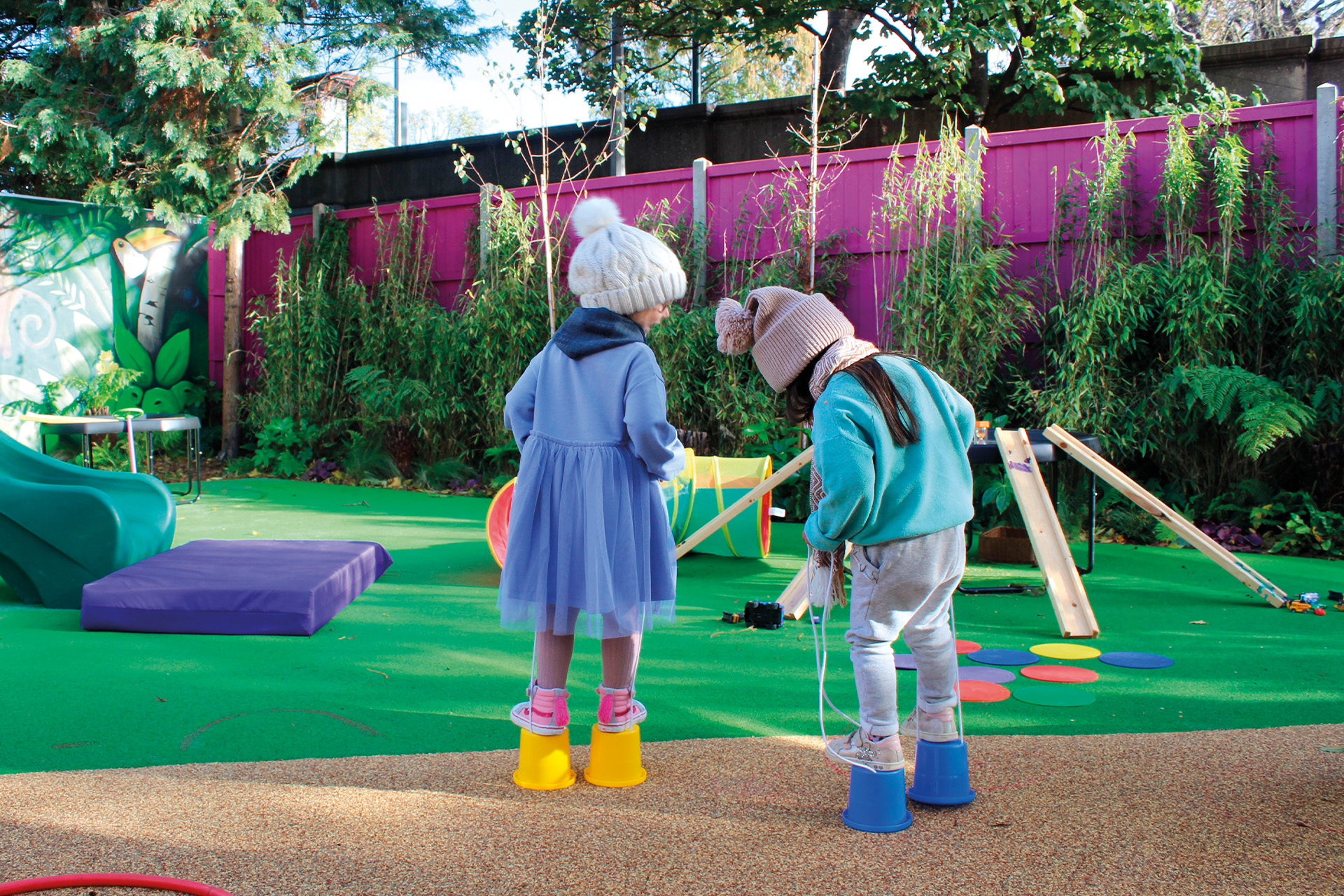
Sports and movement education at nursery schools enables children to develop their physical abilities, but it has other benefits, explains Kate Jones
As nursery school pupils begin a new academic year, parents and carers may well be looking forward to a quieter pace of life if they’ve spent the holidays trying to keep their little ones busy and active. Fortunately, the work of independent nurseries can go a significant way towards helping youngsters get enough daily movement — physical development is part of the government’s statutory early years foundation stage (EYFS) framework, and any good nursery setting should make available a range of methods to boost children’s physical activity. ‘An early years environment that embraces opportunities for pupils to increase their physical activity in a variety of ways will see physical development progress,’ Helen Stanton-Tonner, Director of Education and Inclusion at the Independent Schools Association (an organisation for private school
heads), stresses.
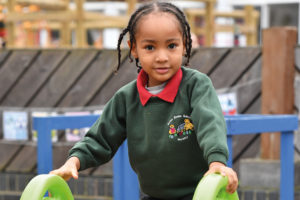
Playtime at Eaton House School Nursery
The EYFS framework’s Early Learning Goals (indicating the expected developmental level for children at the end of the EYFS) cover gross and fine motor skills, with targets under these categories including energetic movement, demonstration of coordination and the effective holding of a pencil in preparation for fluent writing. For Tadpoles Nursery, which has sites in Chelsea and Kensington, the development of both motor skill types is embedded across the two schools’ provision. Football, yoga, dance and drama are included in the schools’ curriculums, with rugby and tennis clubs also offered. Both schools have outdoor areas, and forest school is additionally included within the sites’ teaching. ‘Children need to develop a very good, strong core, and that is what we aim they do,’ says Claire Dimpfl, Tadpoles Owner and Head.
The philosophy is similar at the nursery schools at Eaton House The Manor in Clapham and Eaton House Belgravia, with Head of Early Years Roosha Sue noting that children without core strength cannot be expected ‘to hold a pencil and move on to more refined skills’. Tap, gym, swimming, nature club and yoga are taught to Manor students, while gym and forest school make up part of Belgravia’s educational offering. The latter nursery has a sensory playroom with mats and blocks, and the former has an outdoor pirate ship and a slide for nursery pupils to develop their climbing abilities on. ‘What we want the children to do is cross midline, using different parts of their brain for executive function and upskilling,’ Sue adds.
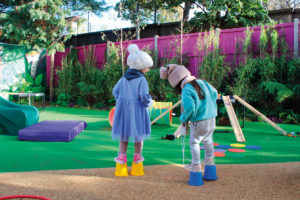
Playing outside at Kew Green Prep Nursery
Across London at Kew Green Preparatory School’s nursery, examples of physical activity resources are a climbing frame and a mud kitchen, while teaching includes ballet, yoga and a fine motor skills focus session for younger learners. Specialist prep school PE teachers undertake PE with pre-eception students, with Mondays in particular devoted to movement. ‘The lead for physical development makes sure that every week, the children learn a different skill,’ says Chantal Baard, Head of Nursery. ‘For instance, it could be throwing beanbags into a bucket or a hula hoop and furthering that distance.’
As this indicates, valuable motor skills education at nursery schools need not always require expensive equipment or state-of-the-art resources. As another example, while the nursery at Shrewsbury House Pre-Preparatory School in Esher in Surrey boasts facilities including a swimming pool, the school highlights how games are also used to assist in pupils’ physical development. ‘Our games always have a purpose, whether it’s children playing Shark Island or the classic Stuck in the Mud, where they’re running around and developing their coordination and awareness of others,’ notes the pre-prep’s Head, Jon Akhurst. It’s a similar picture at The Willow Nursery in Clapham Old Town – while the school has a garden with obstacle courses and climbing frames and uses the external companies Playball and Teddy Tennis, movement breaks (featuring activities like jumping jacks) and physical activity to music also help children to increase their physical capabilities. ‘Mentally, I think physical development is such an important part of life, and I think you want children to have the best possible love for it because it’s so crucial,’ says Tess Shepherd, Head of Nursery.
The Willow Nursery’s sister school, the Willow on the Farm Nursery near Hook Norton in Oxfordshire, meanwhile, has significantly distinctive physical development provision. Alongside an offering that includes forest school and an external dance teacher, being on the farm affords pupils access to a range of unique and safe opportunities for motor skill development, such as running in the fields, brushing the ponies and participating in tractor and trailer adventures. ‘The students learn to manage risks when they’re doing things on the farm,’ says Sharron Sheppard, Manager.
Of course, sports and movement education in independent nurseries doesn’t only improve motor skills. As Amanda Frolich, a former Change4Life Children’s Fitness Consultant and Founder of Amanda’s Action Club, explains, this type of teaching is also used by private settings, ‘as a way to develop pupils’ social skills and their ability to relate to others’. Tadpoles Kensington’s Head, Natalie Going, gives an example of this while discussing Tadpoles’ physical activity provision, saying: ‘The children are learning to negotiate space with each other, learning collaborative play and doing problem-solving together as teams.’ Baard adds: ‘PE is about the physical, but it’s also about how students can work together as a team.’
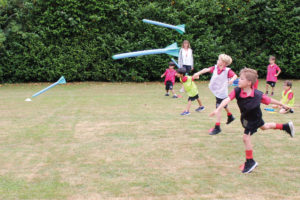
Javelin at Shrewbury House Pre-Prep
Good sportsmanship is another valuable component of physical education, with Kirsty Davies-Duddy, Shrewsbury House Pre-Prep’s Deputy Head and Head of Early Years, highlighting the importance of ‘shaking hands and saying well done’. Akhurst adds that pupils in nursery ‘will begin to understand what it means to play in a team’, and Willow on the Farm Headmistress Alice Clark agrees, saying: ‘Our children know what it’s like to play a key role within a group.’ Interestingly, Shepherd also indicates that preschool pupils have an innate desire to offer support to their peers. ‘Nursery-age children in particular all want the best for each other,’ she says. ‘If they’re doing a running race, for instance, they’re always cheering each other on, and there’s a real sense of being part of something.’
It’s consequently encouraging that independent nursery schools are using their sports and movement education to draw out these kinds of strengths. What’s more, with myriad resources for students to develop their motor skills, there’s no reason why the pupils in their care can’t reach for the sky.





